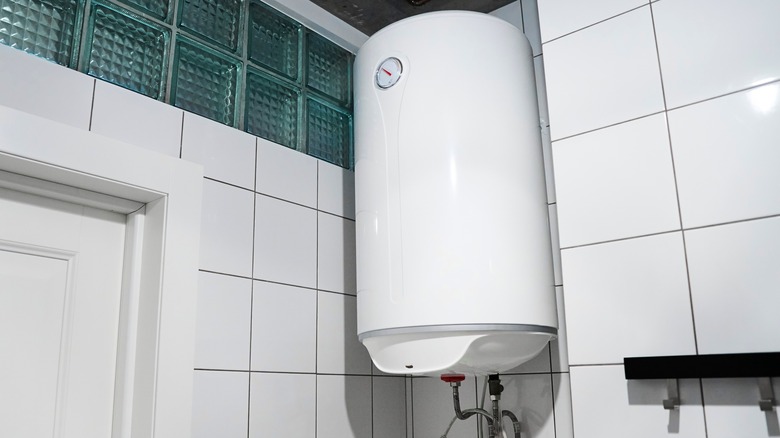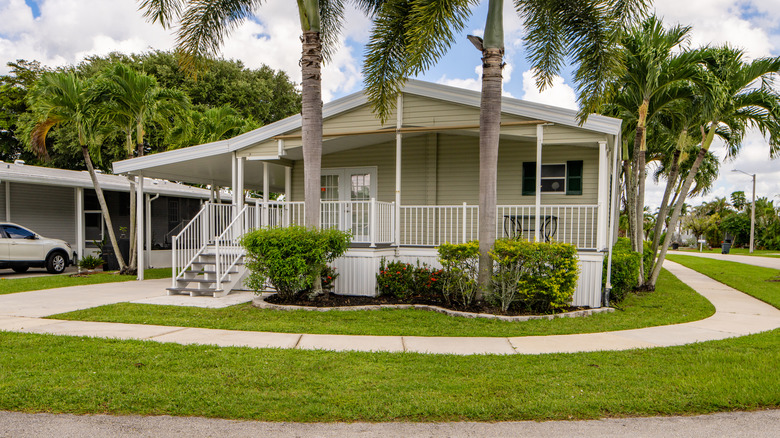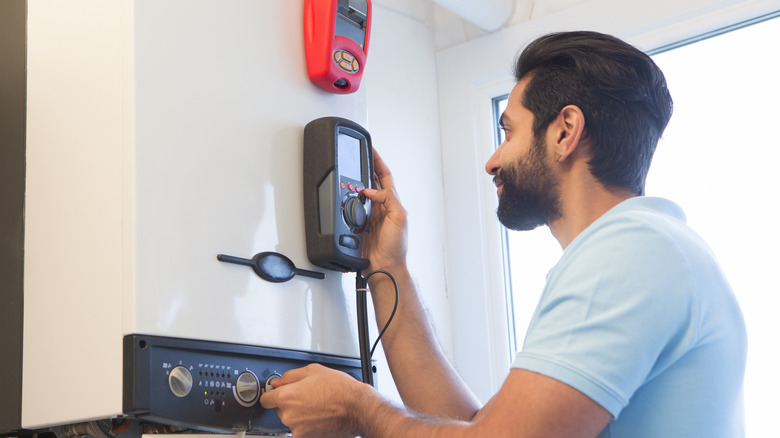If You Have A Mobile Home, Here's What You Should Know About Water Heaters
If you're looking to replace the water heater in your mobile home, you may be tempted to get the least expensive model available. But you shouldn't just install any water heater. The device you choose must comply with (and be certified by) the Manufactured Homes Construction and Safety Standards of the Department of Housing and Urban Development (HUD). For example, while the standards give you plenty of leeway on heater and fuel types, the chosen device must conform to very specific energy efficiency requirements. These vary based on fuel and heater type. Likewise, water heaters serving mobile homes must be equipped with pressure and temperature relief valves. These safety devices have to be calibrated to release pressure when it climbs to 150 pound-force per square-inch (PSI) and stop the burner before the water temperature hits 210 degrees Fahrenheit. To prevent water damage, the heaters should also be fitted with pans that collect and drain leaking water.
If you're installing a new water heater in your mobile home, HUD limits your options, too. There are several strict requirements about water heater placement in a mobile home. For instance, you're not allowed to place them above carpet flooring, and the wall and ceiling finishes next to your water heater must meet a specific flame spread rating for fire safety. To save yourself the headache, it's best to place it in the same spot that the original heater occupied. The original heater location was already approved during home installation, so fitting the new heater there shouldn't break HUD regulations.
How to choose your mobile home's water heater
To choose a heater for your mobile home, consider the fuel you want to use and the heater's capacity. The fuel choice boils down to what's available. For example, your mobile home should be connected to the power grid, whereas natural gas availability will vary by locale. At the same time, if you have plans to relocate your manufactured home after some time, a gas heater may be best — it will work anywhere you like as long as you fill up the propane tank. Meanwhile, the ideal water heater size depends on your hot water consumption and available space. These heaters usually come with 28- 54-gallon tanks, and 30- 40-gallon options are quite common. Tankless water heaters can help you save space; they heat water on demand, so they don't need a hefty storage tank.
Apart from the heater fuel and capacity, consider the brand, price, and warranty term. Rheem is a widely available option if you want the tank, and these heaters come in gas and electric variants. Meanwhile, Camplux is an easily accessible brand for tankless water heaters. In terms of price, tankless water heaters cost about half as much as their conventional equivalents. That said, the warranties on tankless heaters are significantly lower. You're looking at a one-year coverage term on average, while conventional heaters come with warranty lengths of over five years.
How to prolong your water heater's lifespan in a mobile home
Traditional water heaters (including those that serve mobile homes) have an average lifespan of just over a decade. Meanwhile, their tankless peers typically last twice as long. Of course, your heater can give up the ghost much sooner without proper maintenance. Conversely, taking care of the device properly can prolong its lifespan. Now, there's nothing you can do about the heat, water, and pressure-related wear — the heater is subject to these stresses as part of its normal daily function. However, you can reduce the amount of sediment that clogs up the device by servicing and flushing the heater regularly.
Several tell-tale signs will emerge when your water heater needs urgent repairs or a complete replacement. These include leaks, failure to heat water, water that doesn't look clear, and strange noises coming from the device. Some of these symptoms are more serious than others. For example, leaks usually point to excess pressure buildup, which can lead to an explosion — get a certified technician to check your heater right away if you're seeing these. On the other hand, noisy operation and cloudy water could mean that calcium is clogging up the system and your heater is due for a flush. If you suspect that your appliance isn't working right, request service right away.



